77 F. maximum temperature yesterday in the MSP metro area.
83 F. average Twin Cities high on July 1.
75 F. high on July 1, 2016.
July 2, 1989: Softball sized hail falls near Dorset, and baseball sized hail is reported at Nevis in Hubbard County.
July 2, 1972: A low of 32 is recorded at Big Falls in Koochiching County.
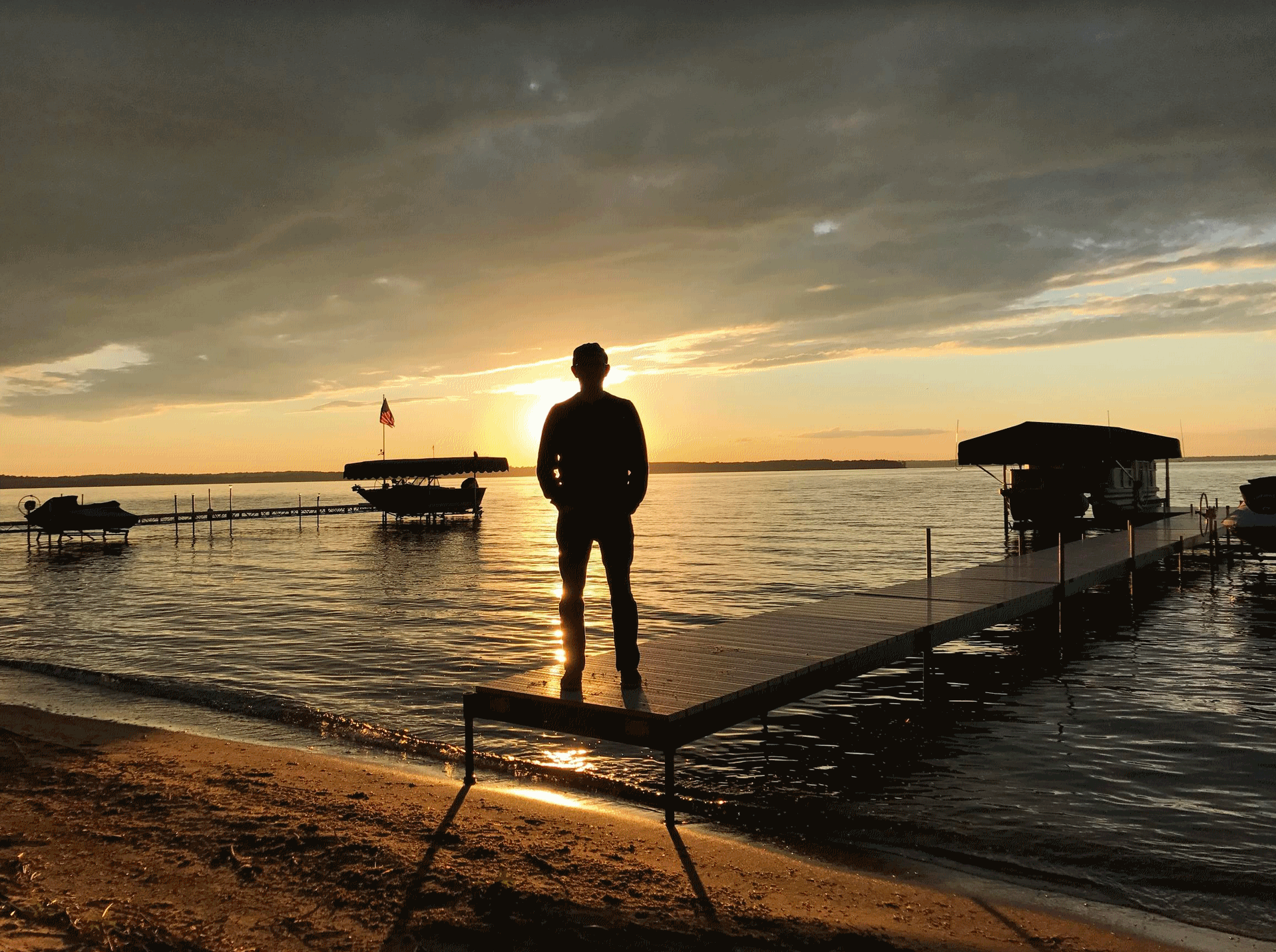 One Tough Weekend to be a Minnesota Meteorologist
One Tough Weekend to be a Minnesota MeteorologistA
few people glared at me yesterday, in spite of having a few showers in
the forecast up north. "I thought you said today would be perfect!" I
did mentioned a shower risk today, ma'am. "Right."
True, people
hear what they want to hear. Even when the forecast is accurate, if
locals don't like the weather, they let me know. I have a new strategy
for PR. Weeping openly and unashamedly. Keeping people confused helps
too. "No, I'm not Paul Douglas. My name is...Ken Barlow and I will atone
for my weather transgressions!"
Yesterday's scrappy band of
showers gives way to a drying north breeze today, with low humidity and
highs in the 70s; near 80F in the MSP metro with a boost from the urban
heat island. A puff of Canadian air keeps us sunny much of Monday, but a
few thundershowers may pop Tuesday afternoon and evening, especially
west of the Twin Cities.
The mercury tops 90F Thursday, and I see a streak of 90s next week as some of the hottest weather of summer pushes north.
July is the hottest month of the year, and I suspect we'll soon get our fill of sweaty heat and humidity.
June Numbers. Twin Cities temperatures were 2.5F warmer than average last month with rainfall close to normal. Details from the
MPX National Weather Service: "
For
temperatures June was a tale of two halves, with the first half of the
month dominated by above normal temperatures, while the second half of
the month was below normal. In the end, the warmth outweighed the cold
by a little bit."
On Your Mark - Get Set - Sweat.
Enjoy the comfortable air (thank you Canada) because temperatures heat
up later in the week, a good chance of low 90s by Thursday before
another cool-down next weekend. Next week looks even hotter across
Minnesota and Wisconsin. Twin Cities ECMWF temperatures: WeatherBell.
7-Day Rainfall Potential.
NOAA's models indicate the heaviest rains are likely to fall from the
Midwest and Ohio Valley to the Carolinas and northern New England, while
the west remains hot and dry.
Atmospheric Firecrackers.
I know it seems like I'm showing you the same predicted weather maps,
day after day, but this optical illusion is brought to you by a
persistent holding pattern. The best chance of showers and T-storms on
the 4th of July comes from St. Louis to Chicago and Detroit, as well as
the Carolinas. There's little chance of weather interfering with fireworks
west of the Rockies. NAM guidance: NOAA and Tropicaltidbits.com.
Slight Mid-Month Relief From The Heat.
Persistent heat is likely from the west coast (including Portland and
Seattle) into the southern Plains and Southeast, but GFS model guidance
hints at a few token cool fronts from the Upper Mississippi Valley into
the Great Lakes and New Englands. Translation: 80s vs. 90s.
Steamy 4th for Much of America. There are no more blue states as of next Tuesday - only red states. Enjoy. Map credit: AerisWeather AMP.
June 28 Tornado in Pierce County, Wisconsin. The Twin Cities National Weather Service has a
preliminary report on Wednesday's tornado touchdown: "
An
EF-1 tornado occurred in Pierce County Wisconsin near the Twin Cities
metro area on June 28, 2017. Tree trunks were uprooted and snapped,
homes had significant roof damage, and a truck slid out of a garage and
was flipped onto its side..."
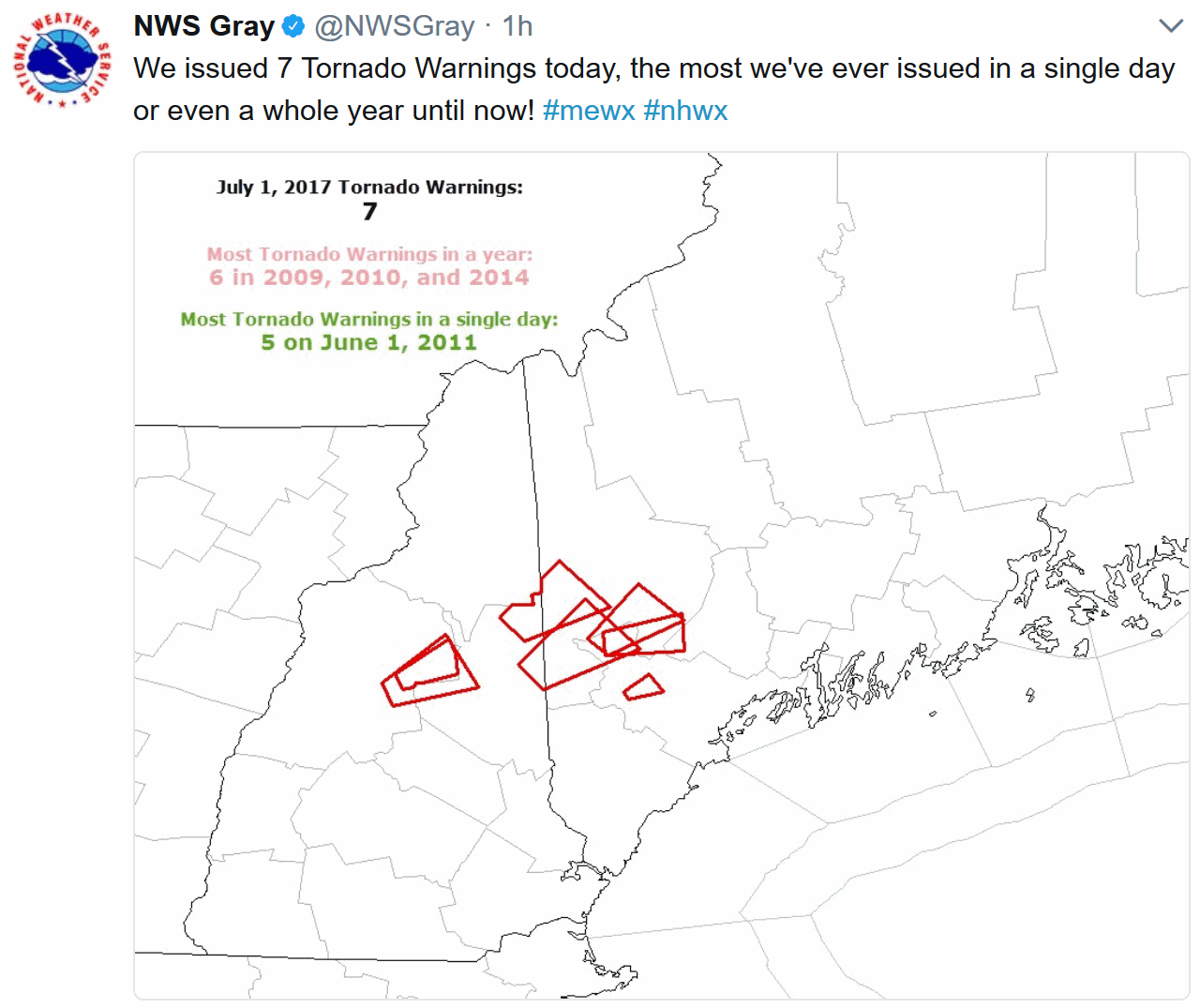 I Can't Remember Ever Seeing This Before
I Can't Remember Ever Seeing This Before. 7 separate tornado warnings in New Hampshire and Maine on Saturday? Wow.
June: Warmer Than Average Again.
After a 20 month straight run of warmer-than-normal May was slightly
cooler, statewide, but June resumes the trend of warmer than the
long-term averages, according to Dr. Mark Seeley at
Minnesota WeatherTalk: "
After
having one of the warmest starts to June in Minnesota history, cooler
than normal conditions prevailed during the second half of the month. As
a result most climate observers are reporting a mean monthly
temperature that is near normal or just 1 to 2 degrees warmer than
normal. A few locations in the far north ended up the month with a mean
temperature that was cooler than normal (Kabetogama and Tower for
example). Among Minnesota's observer network 46 new daily high maximum
temperature records were tied or broken during the first half of the
month, while 35 daily warm minimum temperature records were tied or
broken. Only 7 record low minimum temperatures were tied or set..."
U.S. Total Solar Eclipse Sparks Spectator Excitement. It's very tempting to make a road trip to Missouri - or Wyoming - or Oregon.
Reuters says the hype may be warranted: "
The
first total solar eclipse across the continental United States in a
century is expected to spark watching parties and traffic jams as it
darkens skies from Oregon to South Carolina, authorities said on
Wednesday. During the Aug. 21
eclipse, the moon will pass between the sun and Earth, blocking the face
of the sun and leaving only its outer atmosphere, or corona, visible in
the sky. It is the first coast-to-coast total eclipse since 1918.
Weather permitting, people can watch as the moon's 70-mile (113-km)
wide shadow crosses through 14 states from 10:15 a.m. PDT (1715 GMT)
around Lincoln Beach, Oregon, to 2:49 p.m. EDT (1849 GMT) in
McClellanville, South Carolina..."
Map credit: Eclipse2017.
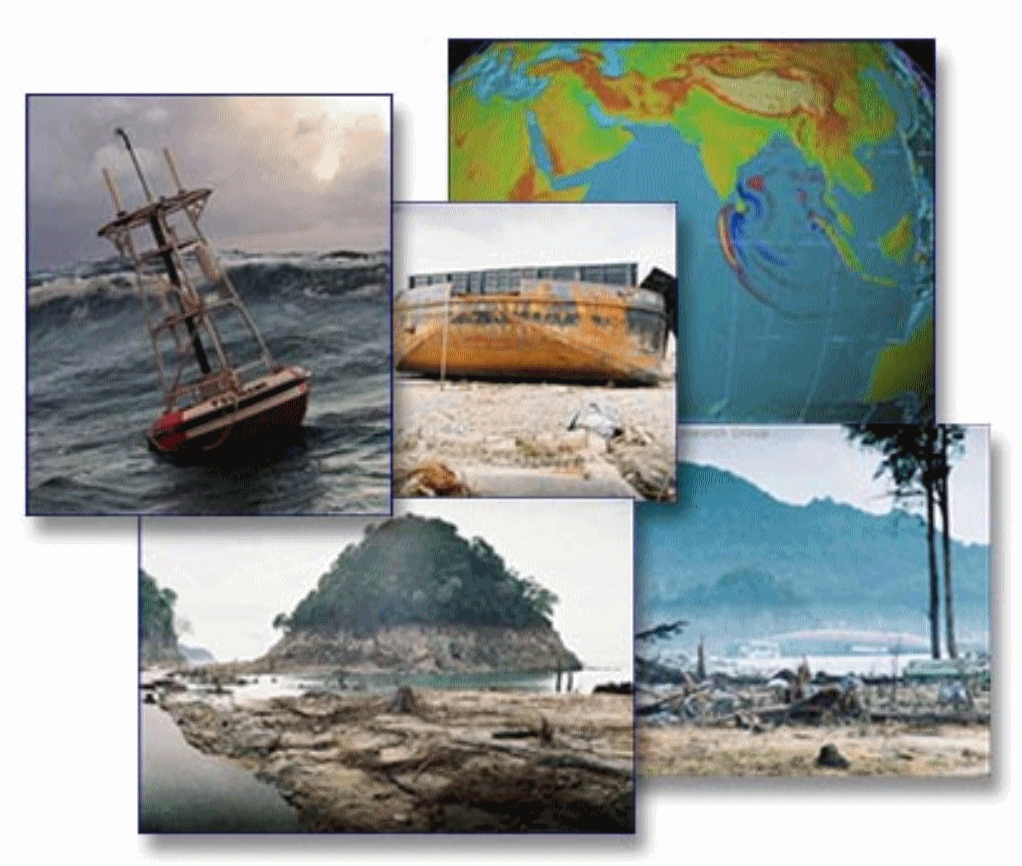 Tsunami: An Underrated Hazard
Tsunami: An Underrated Hazard. David Bressan provides perspective at
Forbes: "...
Modern databases list more than 2,000 historic tsunamis. Most of these were recorded in historic documents, chronicles or even myths.
The database shows that coastlines in the Caribbean Sea, the Pacific
Ocean, the Mediterranean Sea and the Indonesian Sea are among the most
vulnerable areas. Tsunamis can be triggered by movements along the
seafloor, which are typically caused by earthquakes or underwater
landslides. A tsunami that killed 40,000 people in December 1908 on
Sicily, was probably not caused by the preceding earthquake, but rather a large landslide off the coast of Sicily (which likely had been triggered by the quake)..."
NOAA has more background information on tsunamis
here.
Miami Hurricane of 1926.
From an inflation-adjusted perspective this may have been America's
costliest hurricane. Smithsonian Channel has a doc with amazing footage
from this extreme storm Sunday evening at 8 pm.
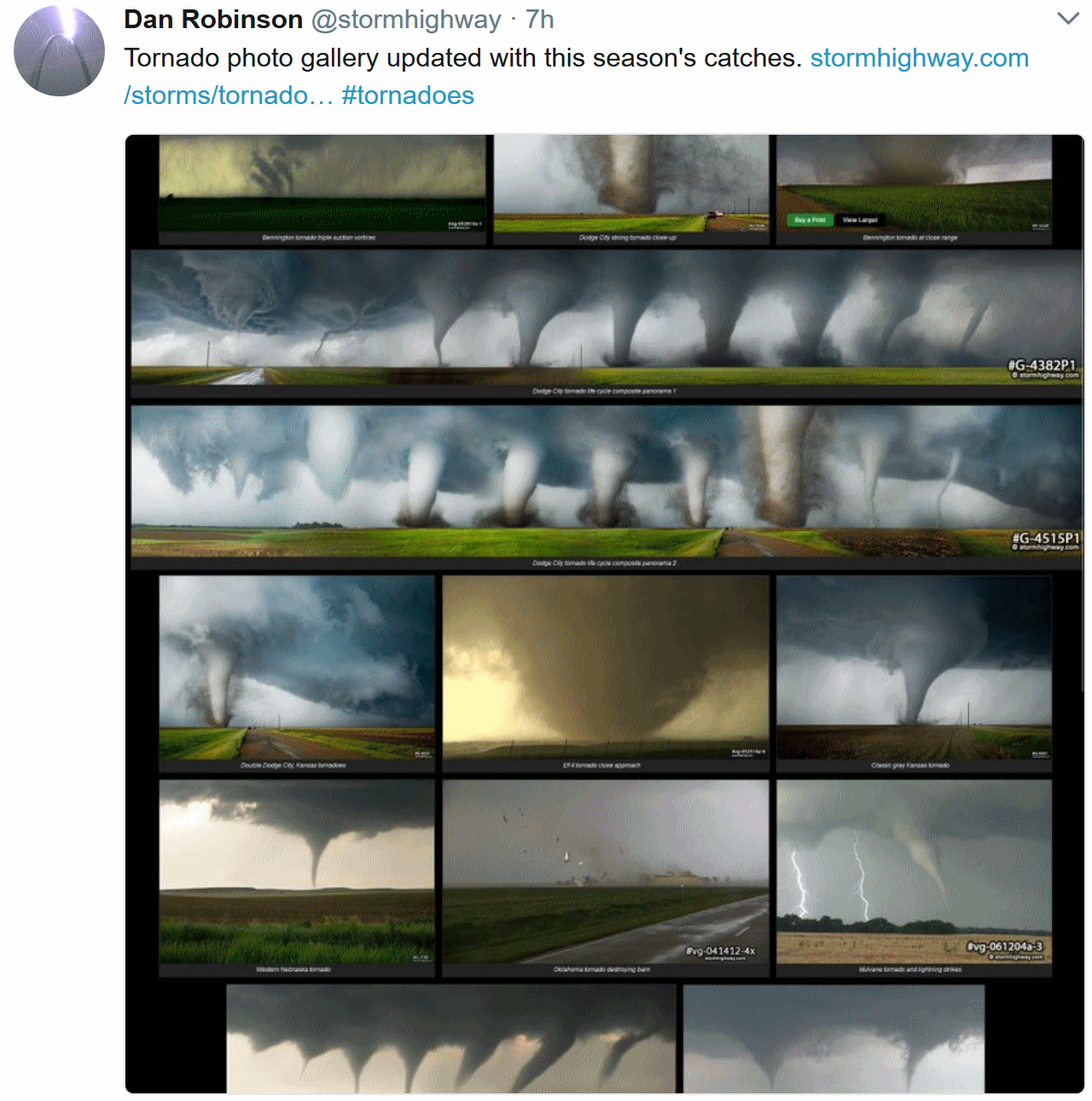
Unseasonable Winter Weather Takes a Bite Out of Georgia's Peach Crop. Unusual winter warmth, coupled with a late-winter freeze, wreaked havoc across the Carolinas.
NPR reports: "...
Certainly
the climate is changing. For whatever reason, we won't get into that,"
Sanchez said. In fact, the last couple of years have been too warm, he
said. "But two years don't make a trend," he added. Climate data kept by
the National Oceanic and Atmospheric Administration, or NOAA, go back
much further than that. NOAA statistics put Georgia's average winter
temperature at 45 degrees Fahrenheit in 1895. The most recent average,
from 2015, puts that at 47 degrees. Still, even given the terrible
season, Sanchez said there are plenty of peaches for Southern markets.
Just don't look for them outside the South..."
Photo credit: "
Peaches ready for packing and shipping at Lane Packing, a peach farm in Fort Valley, Ga.
" Grant Blankenship/Georgia Public Broadcasting.
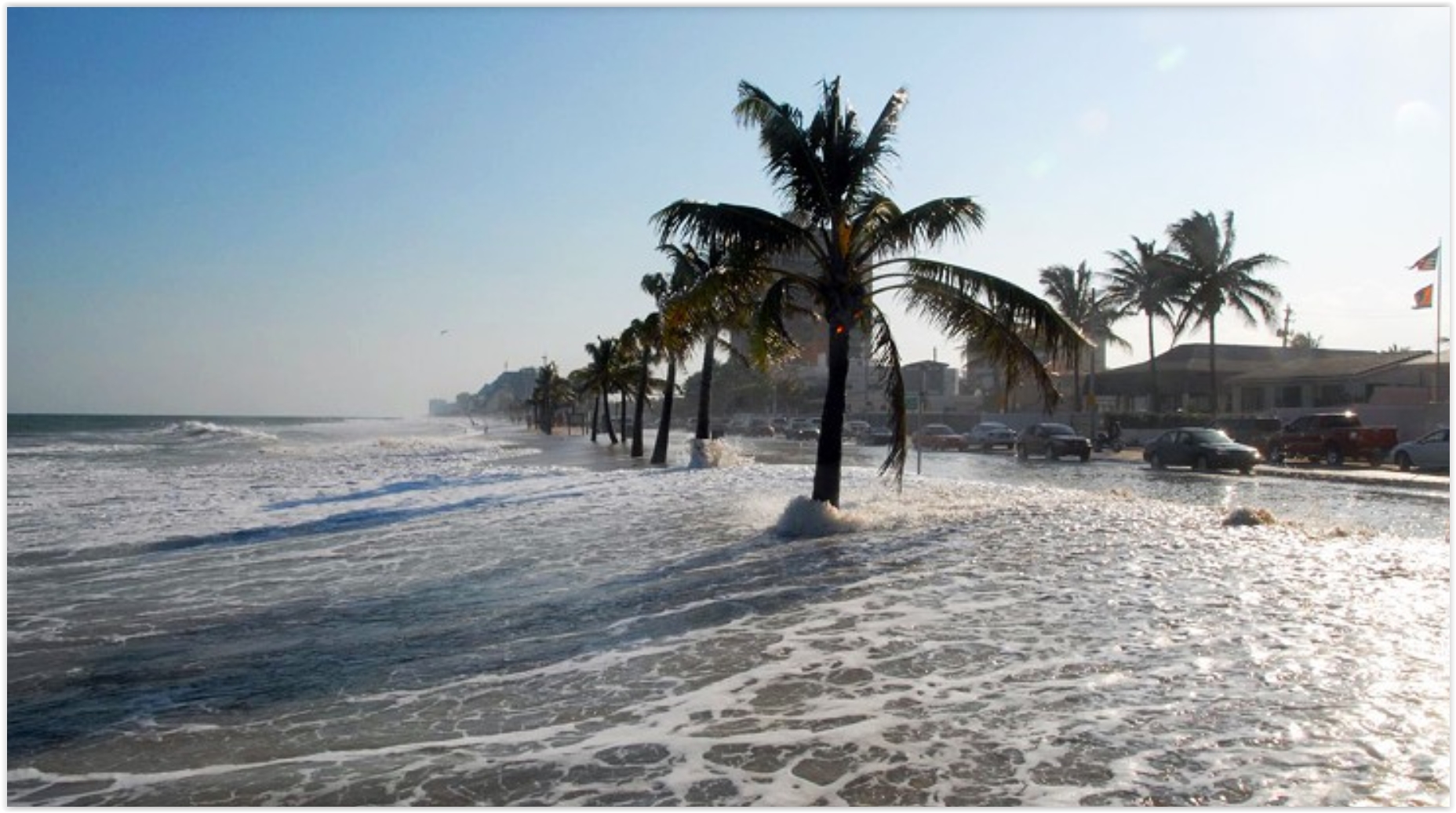 As Sea Levels Rise, NOAA Scientists Work Toward Seasonal Tidal Flooding Forecasts
As Sea Levels Rise, NOAA Scientists Work Toward Seasonal Tidal Flooding Forecasts.
It no longer takes a storm (although that makes things far worse). As
ocean levels rise all it takes today is a new or full moon, reports
The Virginian-Pilot: "...
A
team of NOAA scientists recently began working toward a goal: to
predict tidal flooding for Norfolk and coastal communities all over the
country on a quarterly basis. They’re hoping that the seasonal forecasts
will help everybody from emergency planners to homeowners be more
attuned to the problem – and to the many conditions that can drive tides
higher. “I think this is going to be an emerging thing,” William Sweet,
a NOAA oceanographer who’s helping lead the three-year project, said in
a recent interview. “As sea level rise is continuing and impacts are
growing and expected to become much worse, there’s going to be a need to
say how often, when, where and how deep the water is expected to be...”
Drones, Big Data, Climate: Your Insurance Nightmare. If you're not just a little bit paranoid you're probably not paying attention. Here's an excerpt of a post at
INTHEBLACK that caught my eye: "...
Using
such case studies, Lloyd’s has been modelling the solar flare
situation. Its worst-case scenario says consequences could include
economic losses of almost US$3 trillion, 40 million people impacted and a
recovery time of up to two years. The situation is so serious that in
May 2017 the US Senate unanimously passed the Space Weather Research and Forecasting Act
to support the research of space weather and the development of new
technology to monitor solar flares. It’s not just space weather that can
cause serious business pain..."
Krakow's Essential Accessory: A Smog Mask.
Bloomberg reports: "
Ewa
Zelenska-Olczak was nine months pregnant when this photo was shot in
March. The 23-year-old master’s student at AGH University of Science
& Technology in Krakow, Poland, says she’s almost never without a
mask outdoors, especially from October to April. That’s when the city’s
air is at its worst, heavy with smog, much of it caused by household
stoves that burn coal, wood, and trash to generate heat. Local
coal-fired power plants add to the problem. According to the World
Health Organization, Krakow’s particulate-matter pollution, a mix of
small particles in the air that may affect the heart and lungs, can
reach six times the levels considered safe on high-smog-alert days..."
Photo credit: "
Grzegorz Swiech models the latest streetwear in Krakow, Poland, a city plagued by particulate pollution." Photographer: Tomer Ifrah for Bloomberg Businessweek.
Solar Has Become the World's Cheapest Form of New Electricity. That was fast.
Fortune explains: "
Solar power is becoming the world's cheapest form of new electricity generation, data
from Bloomberg New Energy Finance (BNEF) suggests. According to
Bloomberg's analysis, the cost of solar power in China, India, Brazil
and 55 other emerging market economies has dropped to about one third of
its price in 2010. This means solar now pips wind as the cheapest form
of renewable energy—but is also outperforming coal and gas. In a note to
clients this week, BNEF chairman Michael Liebreich said that solar
power had entered “the era of undercutting” fossil fuels..."
File photo credit: Reed Saxon, AP.
Solar Moves in a Curious Direction Since Trump Quit Paris Deal: Up. Bloomberg reports: "
In the month since President Donald Trump vowed to withdraw from the Paris climate accord,
shares of U.S. solar companies have taken a curious turn. They’ve gone
sharply up. Sunrun Inc. and Vivint Solar Inc., the two largest
independent U.S. rooftop panel installers, have embarked on their
biggest rallies of the year since the president’s June 1 announcement.
Sunrun is up 42 percent, closing Thursday at $7.27. Vivint has risen 86
percent, to $5.75. And SunPower Corp., the second-largest American panel
manufacturer, has gained 19 percent, to $9.49. The rally—which comes as
oil and energy stocks
at large have dipped—appears to have nothing to do with Paris. Rather,
analysts say it’s fueled by the dynamics that typically drive
clean-energy installations: state policies and equipment prices..."
Elon Musk Teases Sunday Announcement About Tesla Model 3 Timing.
The Wall Street Journal reports: "
Chief
Executive Elon Musk teased on his Twitter account that an announcement
about the timing of the coming Model 3 sedan will come on Sunday.
Production of the $35,000 car is scheduled to begin next month and
investor enthusiasm has helped push the company’s shares to record
highs, giving the Silicon Valley auto maker a market capitalization higher than General Motors Co. and Ford Motor Co..."
Photo credit: "A
prototype of the Tesla Model 3 on display at a factory in Sparks, Nev.
The Model 3 is part of Elon Musk’s strategy to boost production next
year to 500,000 from about 84,000 last year." Photo: James Glover II/Reuters
The Epic Untold Story of Nike's (Almost) Perfect Marathon.
WIRED.com has the remarkable story: "...
In
the past 20 years, as the world record continued to inch downward, the
debate over whether a sub-two might actually happen became more and more
contentious. A parlor game arose among physiologists and statisticians,
arguing when we might see the first sub-two: in 10 years, 25 years, 70
years, never. The game found its way to the retreat in Sisters, where
Nurse tasked the NSRL team to imagine how they could make a two-hour
marathon a reality. “We keep talking about the sub-two,” Nurse remembers
saying. It was time to stop talking and actually do it.Sandy Bodecker, a
Nike employee for nearly four decades and the vice president of special
projects, heard the call. He lobbied executives for funding and started
a secret two-hour-marathon task force that was dubbed Project Able
after one of the first monkeys to survive being sent into space...."
Photo credit: "
Seconds
into the sub-two marathon attempt in Italy, Eliud Kipchoge (in orange)
trails Zersenay Tadese (in light blue) and Lelisa Desisa (in white)." Cait Oppermann.
Steve Jobs is a Rorschach Test: To Be a Good Leader, You Don't Have To Be a Jerk. Food for thought from Quartz: "...When asked about Jobs’ biggest shortcomings, his biographer Walter Isaacson offered:
“He could’ve been kinder.” It wouldn’t have cost him anything. He
might’ve even gained some loyalty from it. And it’s not a coincidence
that the Jobs who came back to Apple in 1997 was kinder—I’ve heard this
over and over from his close collaborators. He evolved. Although he
still wasn’t warm and fuzzy, he was less cruel. Mistake 2: confusing
outward prickliness with inner selfishness. I’ve found that whether
you’re a giver or a taker
on the inside is completely separate from how agreeable you are on the
outside. There’s little question that Jobs was disagreeable: He was critical and skeptical...."
10 Creatures That Can Ruin Your Day at the Beach. Our lakes are looking even better. Let's start with jellyfish, courtesy of The Washington Post: "...The
oceans contain thousands of types of jellyfish, ranging from
one-millimeter specks to giants with tentacles more than 100 feet long.
Stings are common: According to a 2008 National Science Foundation
report, about 500,000 people are stung in the Chesapeake Bay every year
and another 200,000 in Florida. Avoid ’em: Keep an eye out for jellyfish
in the water, and definitely don’t pick up that colorful, balloonlike
thing on the sand — it could be a venomous jellyfish cousin called a
Portuguese man-of-war. If you’re stung, rinse with seawater and remove
spines with tweezers or the edge of a credit card. Contrary to that
“Friends” episode, urinating on a jellyfish sting can make it worse..."
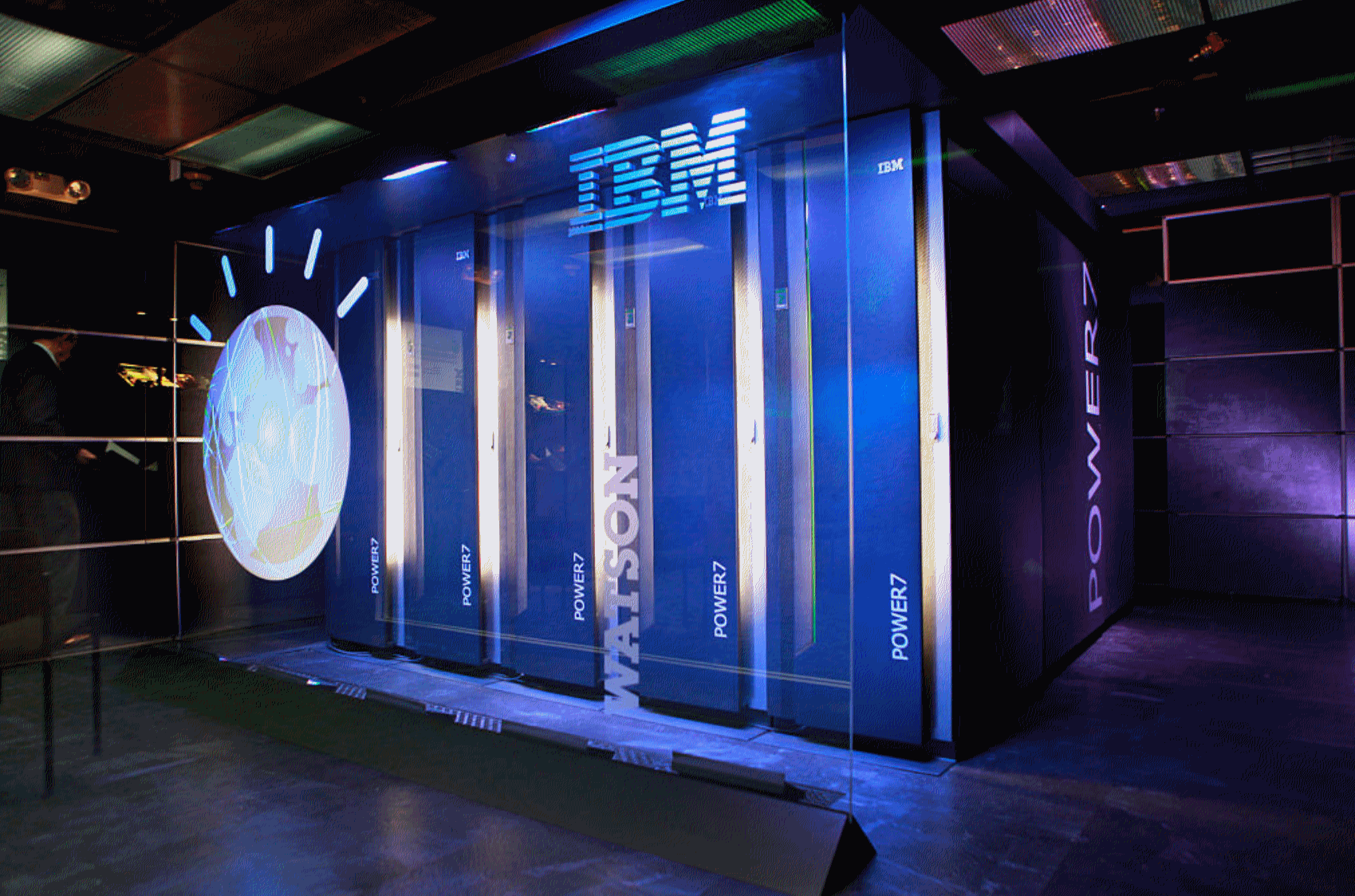 IBM's Watson Will Analyze Wimbledon to Suggest the Best Matches
IBM's Watson Will Analyze Wimbledon to Suggest the Best Matches. Soon we'll all be working for Watson.
Engadget has more detail: "
IBM's Watson can apparently do everything. From manufacturing and medical treatment planning to portrait drawing and filing your taxes, there seems to be no limit to what the Jeopardy-winning
AI can do. And next week, Watson will be offering its services to the
Wimbledon tennis tournament. Those attending the event will be able to
access a Watson-driven digital assistant named Fred via a mobile app.
Fred will be able to help them navigate the courts, find food stands and
vendors as well as figure out who is playing at any given time..."
File photo credit: IBM and
Fortune.
Virtual Reality Tornado Experience Raises Awareness of Wind Perils. Is this how we'll get our (virtual/personalized) weather reports in the very near future? Check out an article at
Business Insurance: "
Munich
Reinsurance America Inc. has released a tornado virtual reality
experience tool to highlight the risks posed by tornadoes and the
importance of embracing resiliency in building construction to help
reduce future property losses. Property damage from convective storms in
the United States has been steadily increasing over the past 40 years,
exceeding more than $22 billion in economic losses, including $15.3
billion in insured losses, in 2016, according to the Princeton, New
Jersey-based reinsurer. “Within the United States, on occasion we do
have the very severe coastal hurricane events like Sandy, like Matthew
last year, but year in and year out, the United States consistently has
very high levels of insured loss due to severe thunderstorm events,
which includes tornado, hail and high winds,” said Mark Bove, senior
research meteorologist at Munich Re US..."
Why We Argue Best With Our Mouths Shut. A story at
Christianity Today caught my eye: "...
But
if it seems obvious that arguing is not an effective way to win someone
over, it doesn’t stop people from trying. From Facebook to family
gatherings, our disagreements regularly erupt into arguments. It’s no
wonder people often avoid topics pertaining to politics and religion, in
both their digital and social lives. It’s often just too risky. If we
have any hope for healing the divisions in our society, families,
churches, and communities, it will serve us well to learn how to have
better conversations. And mounting scientific evidence suggests that the
secret may lie in the charge put forth by James: to make every effort
to be quick to listen and slow to speak (1:19)..."
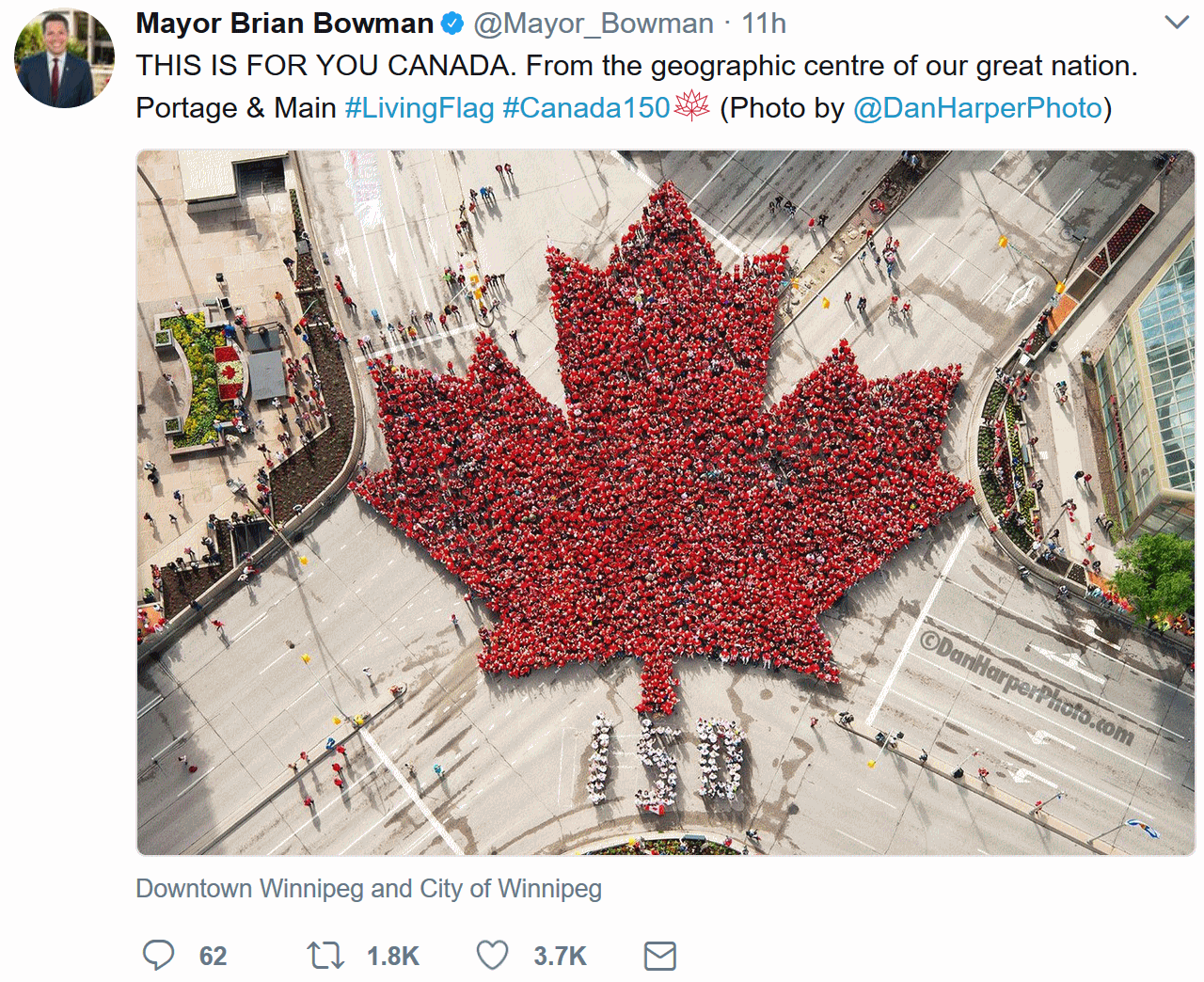
Happy Birthday Canada! Details on Canada Day rom
Wikipedia: "
A federal statutory holiday, it celebrates the anniversary of the July 1, 1867, enactment of the Constitution Act, 1867 (then called the British North America Act, 1867), which united the three separate colonies of Canada, Nova Scotia, and New Brunswick into a single Dominion within the British Empire called Canada..."
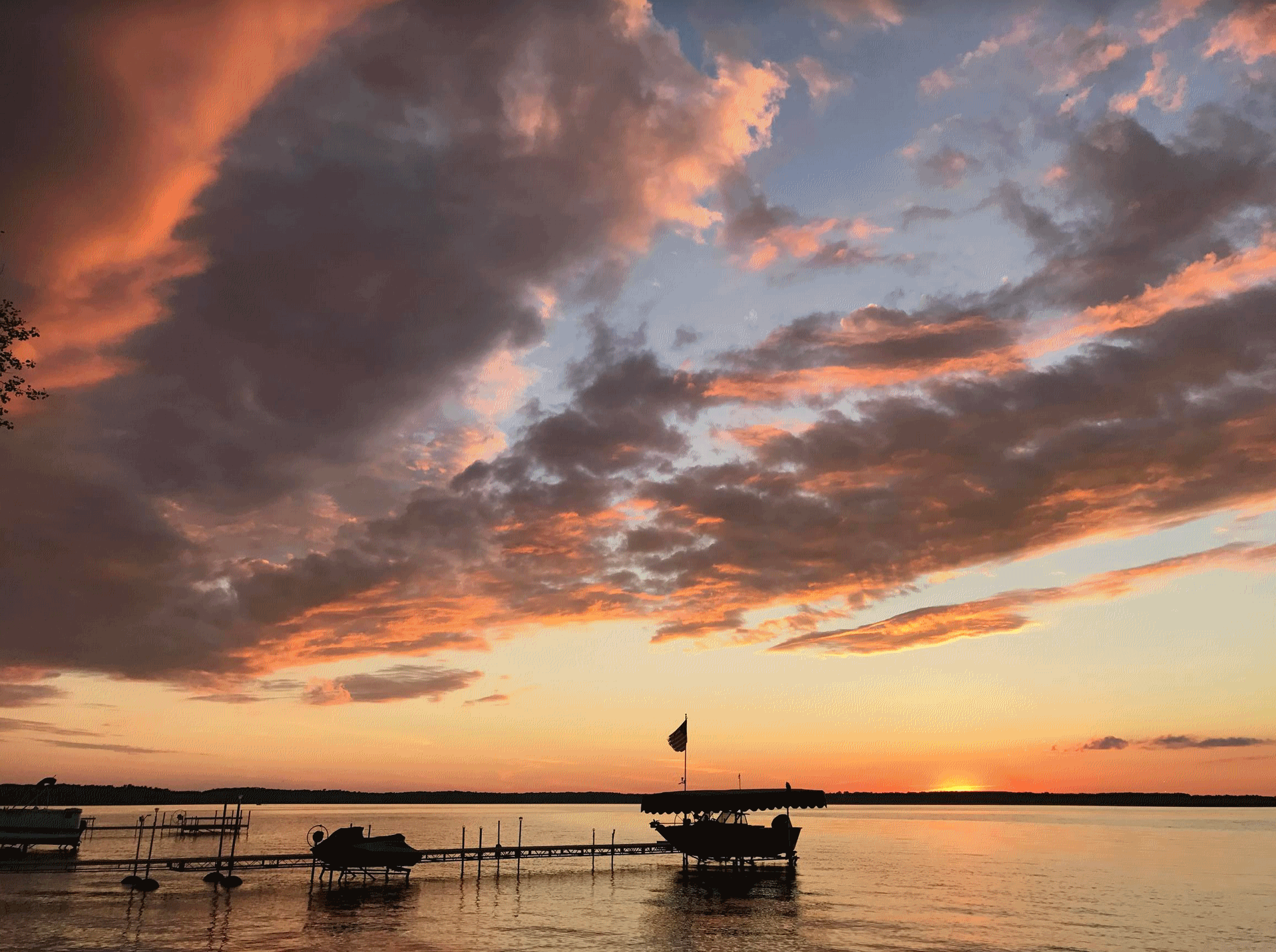 TODAY
TODAY: Plenty of sunshine, a nicer day. Winds: N 5-10. High: near 80
SUNDAY NIGHT: Mostly clear. Low: 61
MONDAY: Partly sunny and pleasant. Winds: SE 5-10. High: 82
4TH OF JULY: Sun much of the day. Late thunder? Winds: SE 8-13. Wake-up: 63. High: 83
WEDNESDAY: Sticky sun, slight risk of a T-storm. Winds: SE 8-13. Wake-up: 66. High: 85
THURSDAY: Hot steamy sunshine, feels like July. Winds: SW 8-13. Wake-up: 70. High: 92
FRIDAY: Clearing, breezy and less humid. Winds: NE 10-15. Wake-up: 71. High: 86
SATURDAY: Sunny, looks promising right now, dip in humidity. Winds: E 5-10. Wake-up: 63. High: near 80
Climate Stories...
 The Pope's Moral Case for Taking On Climate Change.
The Pope's Moral Case for Taking On Climate Change. Here's an excerpt from
The Atlantic: "The majority of people living on our planet profess to be believers.”
It is a statement of fact, an intellectual premise, a gentle claim of territory. In his new encyclical
on environmental degradation, Laudato Si, Pope Francis is not just
addressing the world’s 1.2 billion Catholics. He’s tagging God into the
global conversation on climate change. The document, which was leaked on
Monday by an Italian newspaper and officially released by the Vatican
on Thursday, bitterly condemns the human failures that have eroded much
of the environment. The pope rattles off fact after fact about the
pitiful state of the earth: Pesticides have contaminated farmers’ soil.
Air pollution has poisoned cities. Man-made waste checkers landscapes.
There’s not enough clean water for people to drink or tropical forests
to regulate carbon in the atmosphere. Whole species of animals are dying
out..."
Image credit:
Gregorio Borgia / AP.
A Room Full of Republicans Just Addressed Climate Change, Here's Why. Federal News Radio has the post: "
Rep.
Jim Langevin (D-R.I.) did something this week that many Democrats in
Congress have been unable to do. He got Republicans to act on climate
change. With an amendment to the House 2018 Defense Authorization Bill,
Langevin got his Republican and Democratic colleagues to address the
national security implications of rising sea levels, desertification
and nother nasty effects of global warming. The amendment, which made
it to the final version of the bill, explicitly states that climate
change is a direct threat to the national security of the United States.
It requires the Defense Secretary to make a list of the 10 military
installations most threatened by climate change and to explain how
threats to those installations can be mitigated..."
Rep. Jim Langevin (D-R.I.) did something this week that many Democrats in Congress have been unable to do.
He got Republicans to act on climate change.
With an
amendment
to the House 2018 defense authorization bill, Langevin got his
Republican and Democratic colleagues to address the national security
implications of rising sea levels, desertification and other nasty
effects global warming.
The amendment, which made it into the
final version of the bill, explicitly states that climate change is a
direct threat to the national security of the United States.
More bad news for professional climate skeptics.
Carbon Brief explains: "
A new paper
published in the Journal of Climate reveals that the lower part of the
Earth’s atmosphere has warmed much faster since 1979 than scientists
relying on satellite data had previously thought. Researchers from Remote Sensing Systems (RSS), based in California, have released a substantially revised version of their lower tropospheric temperature record.
After correcting for problems caused by the decaying orbit of
satellites, as well as other factors, they have produced a new record
showing 36% faster warming since 1979 and nearly 140% faster (e.g. 2.4
times faster) warming since 1998. This is in comparison to the previous
version 3 of the lower tropospheric temperature (TLT) data published in 2009..."
Graphic credit: "Produced by Carbon Brief using data from RSS."
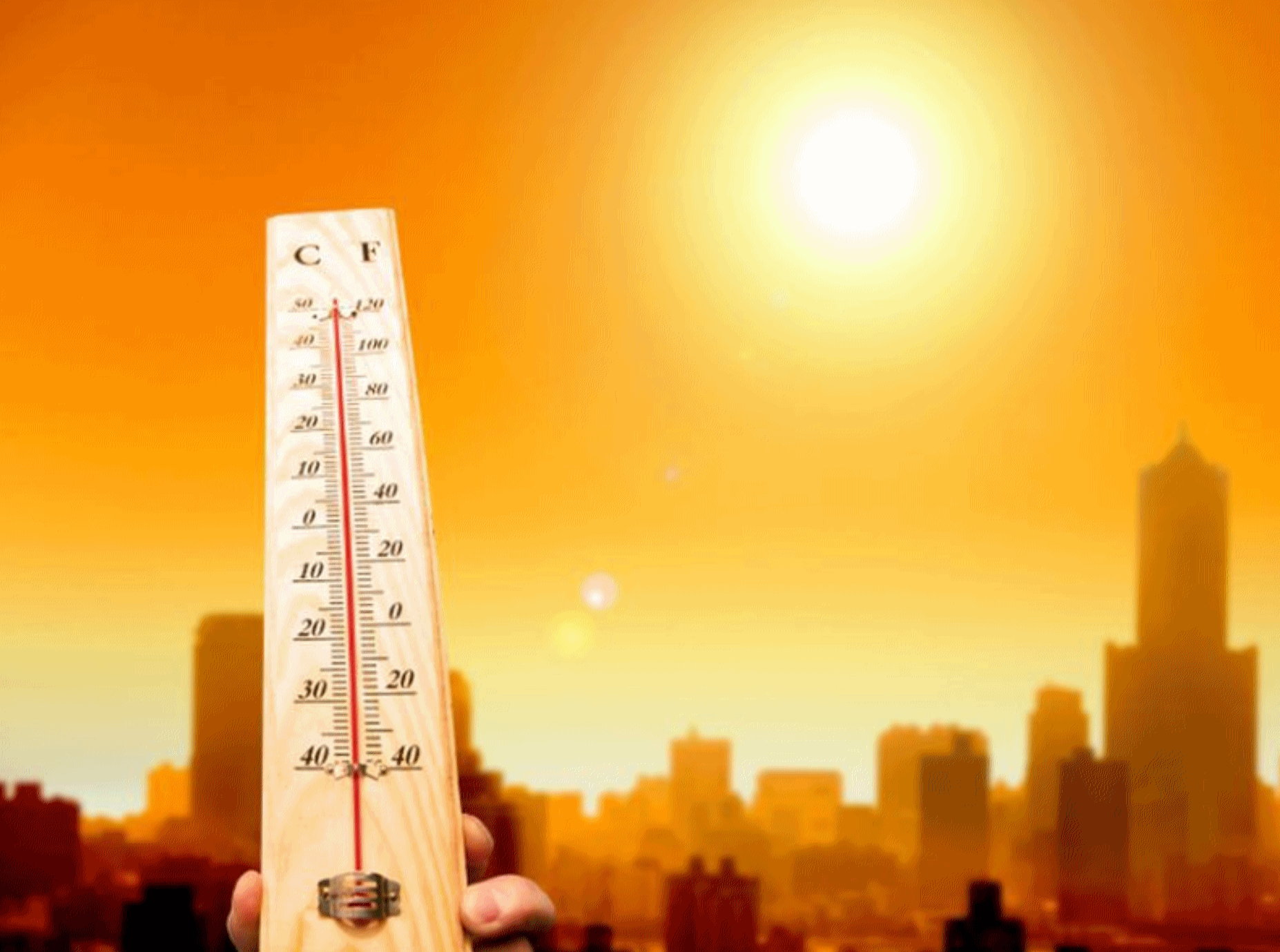 Heat Deaths in U.S. Cities Could Jump 10-Fold if Climate Change Isn't Slowed.
Heat Deaths in U.S. Cities Could Jump 10-Fold if Climate Change Isn't Slowed. Here's an excerpt from Healthday News and
Bismarck Tribune: "
America's
exit from the Paris climate change agreement will lead to more
punishing summer heat waves and thousands of additional heat-related
deaths each year in major U.S. cities, a new report claims. Conducted by
the Natural Resources Defense Council (NRDC), the report projected that
all 51 of the country's urban areas with more than 1 million people
will experience more dangerously hot summer days both in the middle and
late parts of this century. In 45 of the largest cities, excess deaths
on dangerously hot days could increase 10-fold, from an average of about
1,360 each summer between 1975 and 2010 to 13,860 by the mid-2040s, the
report concluded..."
Photo credit: Tom Wang, Bismarck Tribune.
Global Warming Tipped Scales in Europe's Heat Wave. Climate Central delves into the realm of attribution, linking extreme events to a warmer climate: "...
To
evaluate the role of global warming in the recent heat wave, the
researchers used both historical temperature observations and climate
models to see how the oddds of such an event have changed over time and
to compare the odds in a climate with and without warming,
respectively. They found that the likelihood of such a heat wave had at
least doubled across the region and was up to 10 times more likely in
the worst-hit places, Spain and Portugal. What was once a rare heat
event can now happen every 10 to 30 years, as is more likely to happen
earlier in the summer..."
Photo credit: "
Fire and smoke is seen on the IC8 motorway during a forest fire near Pedrogao Grande, in central Portugal on June 18, 2017." Credit: REUTERS/Miguel Vidal.
Winter's Not Coming: Game of Thrones' Jon Snow Worried Over Lack of It.
The Guardian has the story: "
His character Jon Snow may fret about the arrival of winter, but Game of Thrones
actor Kit Harington has said he was instead confronted by “terrifying”
evidence of global warming while filming the HBO show. Harington said it
was a “very sad irony” to film in locations with diminishing ice for
scenes where the arrival of winter, and the frosty undead from beyond
the Wall, is feared by his character. “We went to Iceland to find snow,
because winter is here,” the actor told Time.
“We got there and we were lucky to get the snow we did, because in our
world, winter is definitely not here. It’s this weird parallel, the
opposite parallel..."
Photo credit: "
Kit Harington – AKA Jon Snow – has described ‘terrifying’ evidence of global warming." Photograph: HBO/2015 Home Box Office.
Companies Pressed to Disclose More on Climate Change Risks. The Wall Street Journal reports: "
A
panel of top financial institutions and companies has launched
guidelines to push for more disclosure about the impact of climate
change—highlighting rising concern about the potential investment risks
posed by global warming. The task force, which was commissioned by a
group of global regulators known as the Financial Stability Board and
led by former New York City Mayor Michael Bloomberg, said companies
should disclose in financial filings how they are planning for risks and
opportunities related to climate change. It also called for companies
to develop specific metrics and targets to measure performance in that
area. The task force included executives from J.P. Morgan Chase &
Co., Unilever , mining giant BHP Billiton Ltd. and other large companies..."
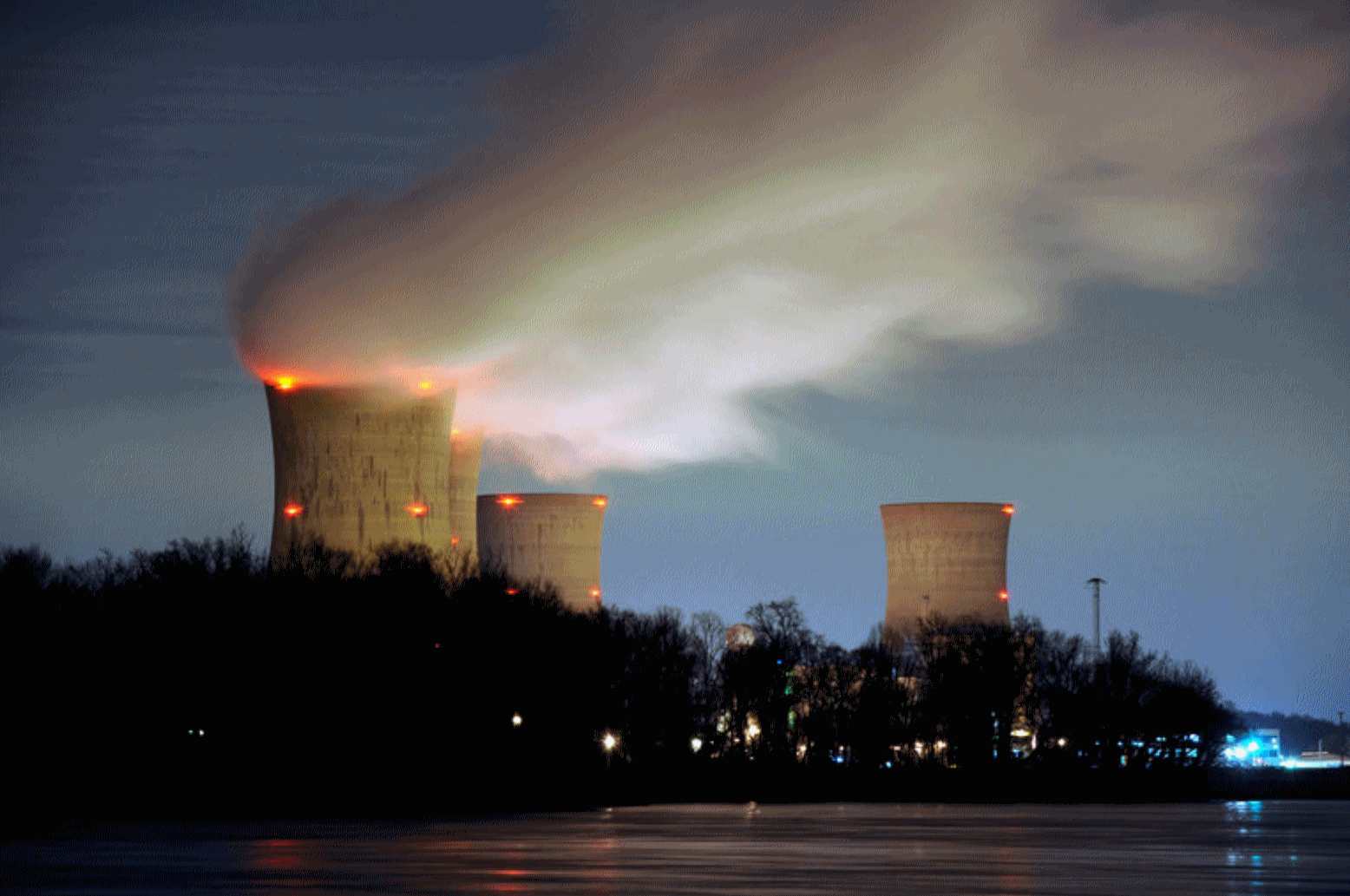 Nuclear Power and Climate Change.
Nuclear Power and Climate Change. Here's a response to a recent Op-Ed in the
New York Times from Carol Browner, former administrator of the EPA, and a member of Nuclear Matters, a national coalition: "...
Trying
to fight climate change without our existing nuclear fleet is akin to
trying to fight a fire with a steadily decreasing supply of water: It
just won't work. We need to recognize this and take steps to preserve
the critical carbon-free power we get from our nuclear plants..."
Photo credit: "
The
Three Mile Island nuclear power plant in Middletown, Pa. Exelon has
said it will shut down the last reactor there by 2019 unless it receives
financial assistance." Jonathan Ernst/Reuters.
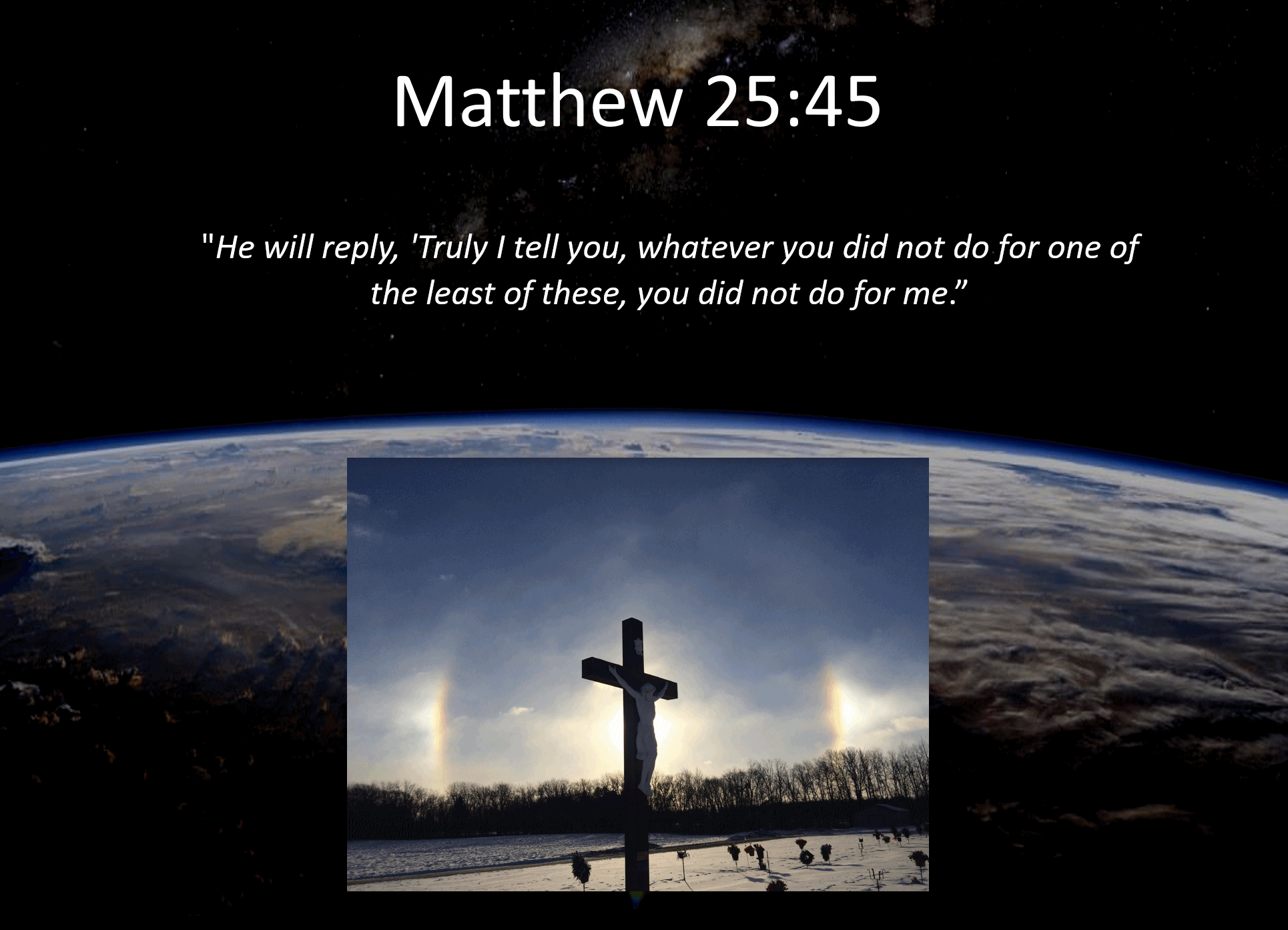 Climate Change in the U.S. Could the Rich and Hurt the Poor. The Washington Post
Climate Change in the U.S. Could the Rich and Hurt the Poor. The Washington Post explains the implications of a warmer, wetter, more volatile climate: "...
Researchers
have long warned that unmitigated climate change could cause severe
financial hardship to the United States in coming decades. But a new
study published Thursday in the journal Science details how global
warming could disproportionately affect poor areas of the
country, contributing to widening economic inequality among Americans.
“The poor regions will get poorer and the richer regions will benefit,”
said study co-author Solomon Hsiang, a professor of public policy at the
University of California at Berkeley. “What we’re seeing here is that
climate change will have a very large impact on the quality of life and
economic opportunity in the coming decades for ourselves and our
children...”
What Can We Learn From Dystopian Fiction About Climate Change? Hyperallergic.com has an interesting post.
Could Climate Change Spark a "Permanent Recession"? TIME
weighs in with perspective on new research looking into how climate
volatility and weather disruption might disrupt America's GDP in the
decades to come: "
Climate change will wreak havoc on the U.S.
economy, leading to as much as a 3% decline in national GDP by the end
of the 21st century if left unaddressed — and losses will be far higher
in some of the country's poorest areas, according to a new study. Researchers behind the study, published in the journal Science,
evaluated a number of factors that will contribute to economic decline
as average global temperatures continue to rise, including increased
energy costs, coastal damage, mortality rates and damage to agriculture.
The study authors did not assess some other factors that carry economic
costs, like damage to biodiversity, because such losses can be
difficult to quantify..."
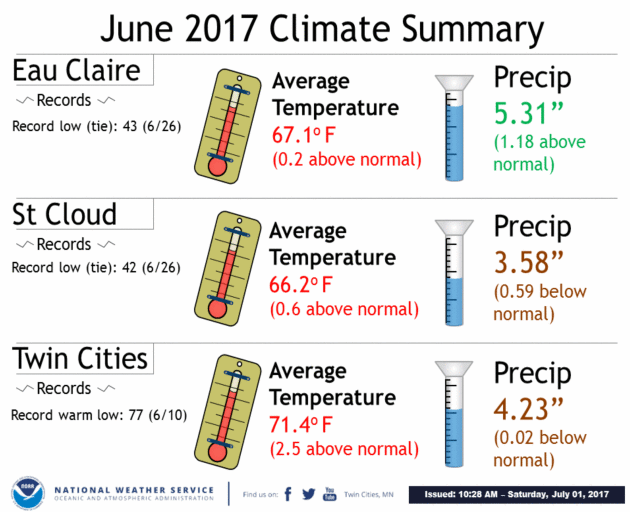
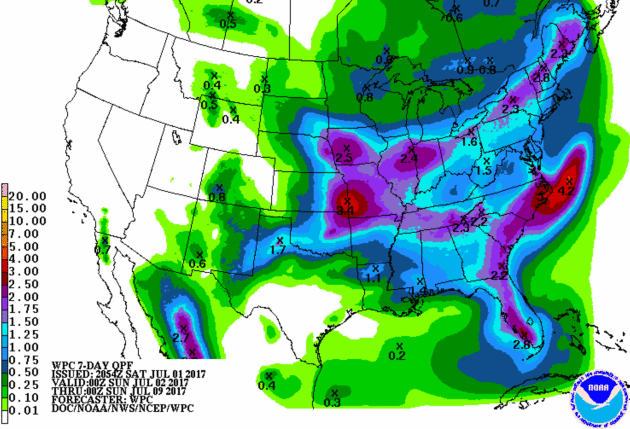
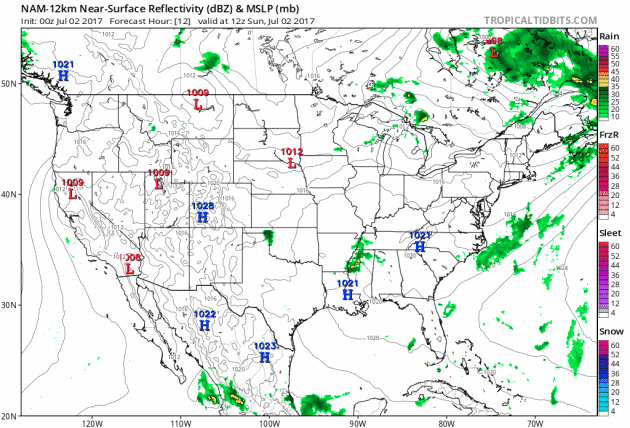
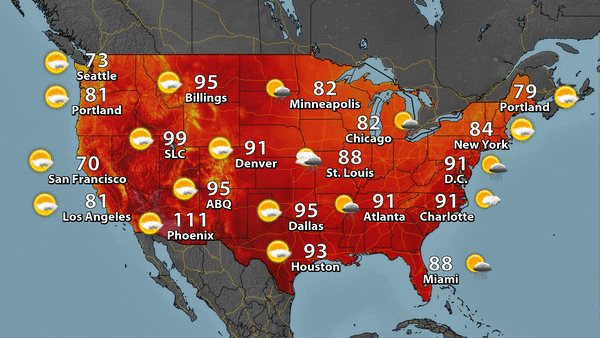
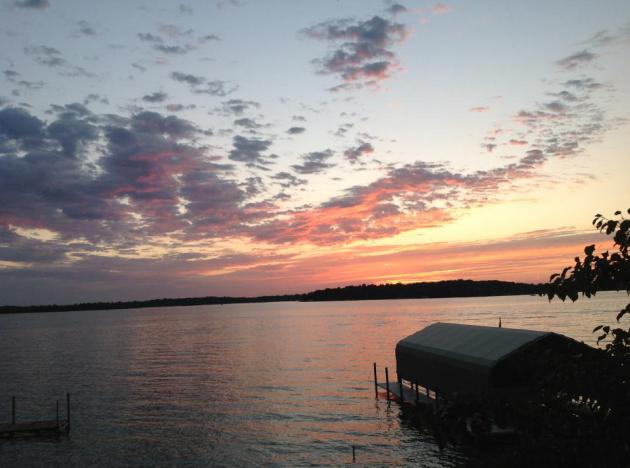
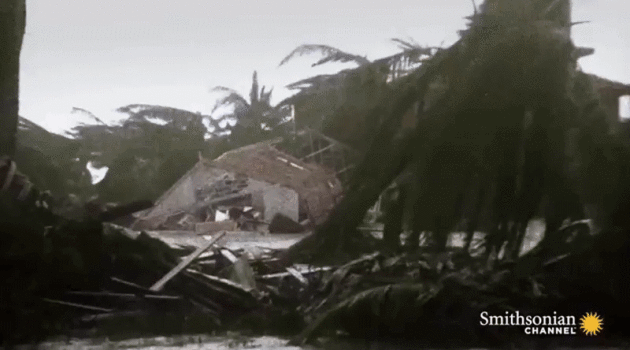
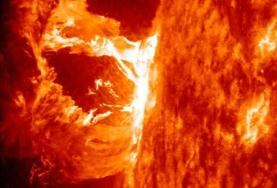
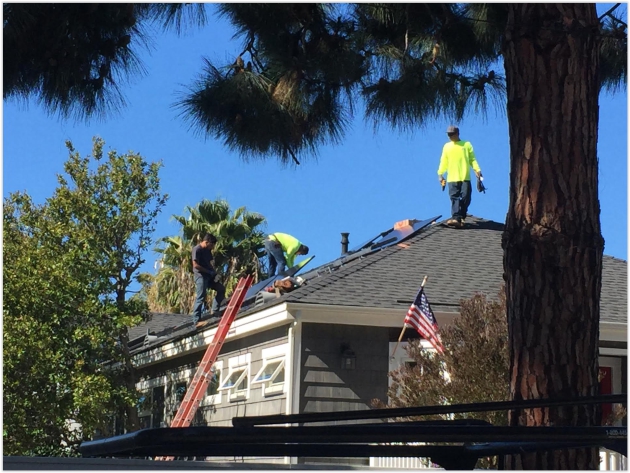



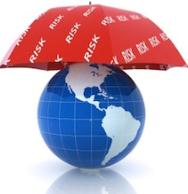
No comments:
Post a Comment